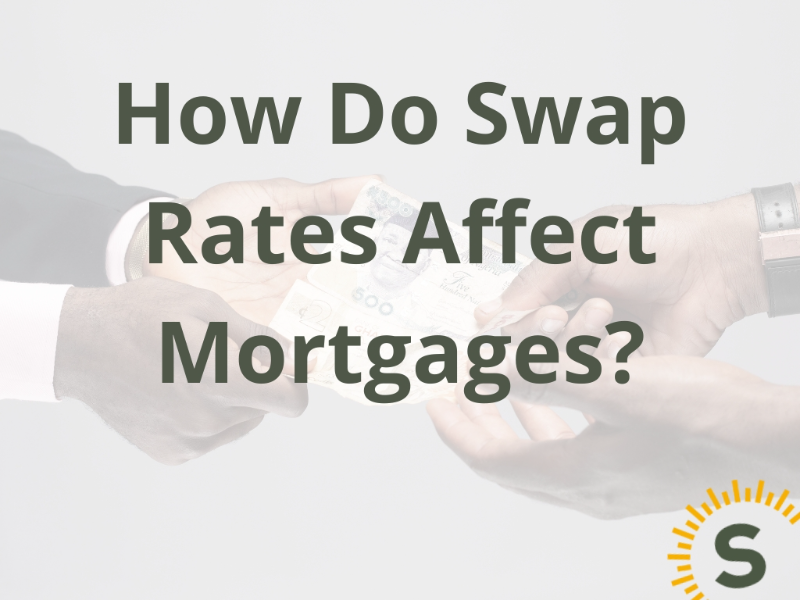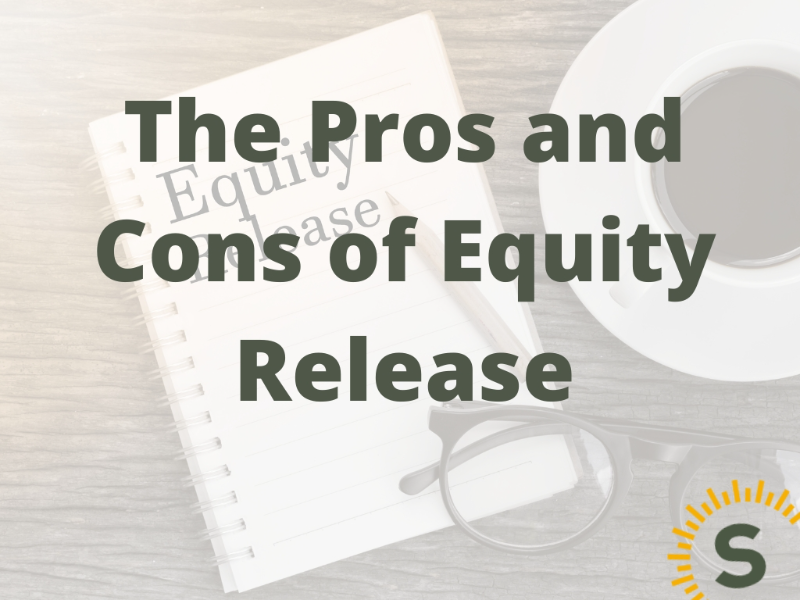
A lifetime mortgage offers a unique opportunity to tap into your property's equity, granting you the financial freedom you desire in your golden years. However, this is a complex type of loan that comes with certain limitations you need to be aware of.
In this insight, we tackle the question, what is a lifetime mortgage, what to look out for, and how to find an adviser for your needs.
A lifetime mortgage is an equity release option for homeowners to access their property's value without selling it. Based on age and property value, you receive a lump sum or regular income, retaining ownership. No monthly repayments are needed, and the loan is repaid when you die or sell the property
Let's say that you own a property worth £500,000, and you decide to take out a lifetime mortgage. The provider of the lifetime mortgage agrees to lend you a lump sum payment of £100,000, with an interest rate of 4%.
If you choose to roll up the interest, after 10 years, the loan amount would be £148,024. If you continue to roll up the interest, the amount owed would continue to increase. If you choose to pay the interest monthly, you would need to make payments of £333.33 per month.
When you die or sell the property, the loan, along with any accumulated interest, is repaid from the proceeds of the sale. If the property is sold for £600,000, the loan amount and any interest owed would be repaid from the proceeds of the sale, and you or your estate would receive the remaining amount.
A lifetime mortgage works by borrowing against the value of your home. The amount you can borrow with equity release depends on your age, the value of your property, and the provider's terms and conditions.
With a lifetime mortgage, you do not have to make any monthly repayments, and the interest charged on the loan can be rolled up and added to the loan amount or paid monthly. The loan, along with any accumulated interest, is repaid when you die or sell your home.
Interest rates on lifetime mortgages are usually fixed, which means that the interest rate does not change throughout the term of the loan.
As Interest can continue to roll up, it is important to consider how much equity you have available and whether you need to find a lifetime mortgage with a no negative equity guarantee.
A no negative equity guarantee is a condition built into lifetime mortgages that wipes off any debt that exceeds the value of the property. For example, if interest continues to accumulate and house prices drop, any negative equity will not needed to be paid back after death. This protects your estate and your family from needing to pay any left over debts that may arise from equity release.
With a lifetime mortgage, the amount you can release depends on factors such as your age, the value of your home, and your health. Typically, you can release between 20% and 60% of your property's value, with older individuals usually being eligible for higher percentages. This is because the loan provider assumes the risk of a decline in house prices, and the loan is repaid when you pass away or move into long-term care.
Try our Equity release calculator to find out a rough estimate of how much you can borrow.
To qualify for a lifetime mortgage, you generally need to be over the age of 55, although some providers may require you to be older. The age of the youngest applicant is also taken into account for joint applications.
In addition, you must own your home and it should be valued above a certain threshold, which varies depending on the provider. It's important to note that you can still have an outstanding mortgage on your property, but the amount you can release will be lower.
While both home reversion plans and lifetime mortgages are types of equity-release schemes, lifetime mortgages are more commonly used. With a lifetime mortgage, you borrow money against the value of your home and the interest is added to the loan, which is repaid when you die or move into long-term care.
Home reversion plans, on the other hand, involve selling a share of your home to a provider, who then pays you a lump sum or regular income in return.
If you're concerned about the compounding interest rates associated with lifetime mortgages, a home reversion plan may be a better option. However, it's important to consider the potential impact on your inheritance and seek advice from an equity release adviser before making a decision.
A lifetime mortgage can indeed be a good idea if you need funds for retirement or improving your lifestyle. Nevertheless, it's vital to weigh potential costs and how it may affect your inheritance. Seek advice and explore alternatives before making a final decision
Yes, some lifetime mortgages offer the flexibility to repay the loan early without incurring early repayment charges. However, this can vary depending on the specific mortgage product you choose. It's crucial to review the terms and conditions of the mortgage and discuss the early repayment options with your lender. If early repayment is an important consideration for you, it's advisable to seek advice and explore different lifetime mortgage options to find the one that best suits your needs.
Yes, there are two options: regular remortgage and Home reversion. With a regular remortgage, you pay back the loan while you're alive. With home reversion, you sell part of your home and pay it back after you pass away or need long-term care.
Before proceeding with a lifetime mortgage, it's essential to seek advice from an equity release adviser who is a member of the Equity Release Council. This ensures that the adviser adheres to the council's standards of advice in the industry.
If you're unsure where to start, you can complete the Sunny fact find to help us find you an adviser who is best suited to your needs. Your adviser will then contact you to discuss your circumstances and how they can assist you in deciding how to proceed.

Stuart is an expert in Property, Money, Banking & Finance, having worked in retail and investment banking for 10+ years before founding Sunny Avenue. Stuart has spent his career studying finance. He holds qualifications in financial studies, mortgage advice & practice, banking operations, dealing & financial markets, derivatives, securities & investments.
 No minimum
No minimum  Leyland, Lancashire
Leyland, Lancashire No obligation consultation
No obligation consultation
 No minimum
No minimum  No obligation consultation
No obligation consultation
 No minimum
No minimum  Free Consultations
Free Consultations
 No minimum
No minimum  No obligation consultation
No obligation consultation
 No minimum
No minimum  Initial fee free consultation
Initial fee free consultation
 No minimum
No minimum  Initial fee free consultation
Initial fee free consultation
 £51,000+
£51,000+  Free Consultations
Free Consultations
 No minimum
No minimum  Initial fee free consultation
Initial fee free consultation
 £101,000+
£101,000+  Bishop's Stortford, Hertfordshire
Bishop's Stortford, Hertfordshire No obligation consultation
No obligation consultation
 No minimum
No minimum  Initial or Ongoing Consultation Fees
Initial or Ongoing Consultation Fees
 No minimum
No minimum  Initial fee free consultation
Initial fee free consultation
 No minimum
No minimum  Initial fee free consultation
Initial fee free consultation
 £51,000+
£51,000+  Sheffield, South Yorkshire
Sheffield, South Yorkshire No obligation consultation
No obligation consultation
 No minimum
No minimum  No obligation consultation
No obligation consultation
 No minimum
No minimum  Newcastle-under-Lyme, Staffordshire
Newcastle-under-Lyme, Staffordshire Free Consultations
Free Consultations
 No minimum
No minimum  Free Consultations
Free Consultations
 No minimum
No minimum  No obligation consultation
No obligation consultation
 No minimum
No minimum  No obligation consultation
No obligation consultation
 No minimum
No minimum  Free Consultations
Free Consultations
 No minimum
No minimum  No obligation consultation
No obligation consultation
 No minimum
No minimum  Coatbridge, Lanarkshire
Coatbridge, Lanarkshire Initial or Ongoing Consultation Fees
Initial or Ongoing Consultation Fees
 No minimum
No minimum  Initial or Ongoing Consultation Fees
Initial or Ongoing Consultation Fees
 £21,000 +
£21,000 +  Initial fee free consultation
Initial fee free consultation
 London, Greater London
London, Greater London No obligation consultation
No obligation consultation
 No minimum
No minimum  No obligation consultation
No obligation consultation





Our website offers information about financial products such as investing, savings, equity release, mortgages, and insurance. None of the information on Sunny Avenue constitutes personal advice. Sunny Avenue does not offer any of these services directly and we only act as a directory service to connect you to the experts. If you require further information to proceed you will need to request advice, for example from the financial advisers listed. If you decide to invest, read the important investment notes provided first, decide how to proceed on your own basis, and remember that investments can go up and down in value, so you could get back less than you put in.
Think carefully before securing debts against your home. A mortgage is a loan secured on your home, which you could lose if you do not keep up your mortgage payments. Check that any mortgage will meet your needs if you want to move or sell your home or you want your family to inherit it. If you are in any doubt, seek independent advice.